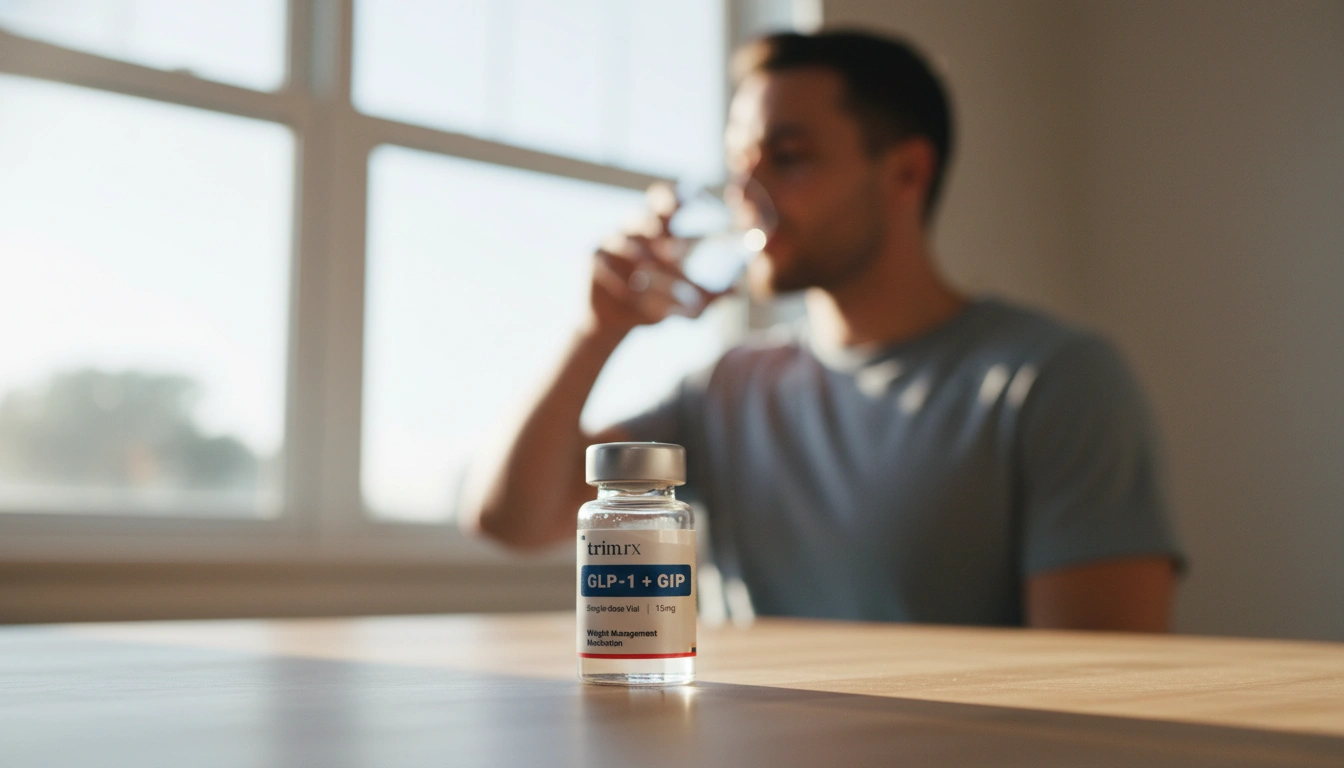Why Do GLP-1 Drugs Stop Working? Understanding Plateaus in Weight Loss

Have you ever experienced the frustration of hitting a weight loss plateau? If so, you’re not alone. Many individuals who have turned to GLP-1 (glucagon-like peptide-1) drugs for weight management find themselves wondering why these medications—initially effective—seem to lose their potency over time. It’s a perplexing situation that can lead to feelings of disappointment, confusion, and even discouragement.
In recent years, GLP-1 drugs have emerged as groundbreaking treatments for obesity, offering hope to individuals struggling with weight management. However, as we navigate this complex landscape, it’s crucial to understand why these medications might stop working and what factors contribute to this phenomenon. In this blog post, we will explore the science behind GLP-1 drugs, the factors that influence their effectiveness, and strategies to overcome weight loss plateaus.
By the end of this post, you will have a deeper understanding of GLP-1 medications, the physiological mechanisms at play, and how to optimize your weight loss journey. We invite you to engage with us as we explore this topic together, shedding light on the intricacies of weight loss and the role of GLP-1 drugs.
Introduction
The journey of weight loss is often fraught with challenges, and for many, it can feel like an uphill battle. When individuals begin using GLP-1 medications such as Semaglutide and Tirzepatide, they often experience significant weight loss, often cited as 15% to 20% of their body weight. However, as time progresses, many people encounter a frustrating plateau where the scale stops moving, and the initial success seems to wane.
This experience can be disheartening, leading to questions like: Why are these medications no longer effective? What has changed in my body? Understanding the reasons behind these plateaus is essential, as it can help individuals regain control of their weight loss journey.
In this blog post, we will break down the mechanisms of GLP-1 drugs, discuss the body’s response to weight loss, and provide actionable strategies to help overcome stagnation in weight loss. We will also highlight how a personalized approach, such as the one we offer at TrimRx, plays a pivotal role in achieving sustainable results.
The Science of GLP-1 Drugs
GLP-1 drugs are a class of medications that mimic the effects of the naturally occurring hormone glucagon-like peptide-1. They work primarily by stimulating insulin secretion, suppressing glucagon release, and slowing gastric emptying. As a result, these drugs help individuals feel fuller for longer, reducing hunger and aiding in weight loss.
Mechanisms of Action
-
Appetite Regulation: GLP-1 drugs enhance feelings of satiety and fullness, which can significantly reduce food intake. This suppression of appetite is vital for achieving weight loss.
-
Improved Glycemic Control: By increasing insulin secretion and decreasing glucagon levels, GLP-1 medications help regulate blood sugar levels, making them especially beneficial for individuals with type 2 diabetes.
-
Slowed Gastric Emptying: These medications slow the rate at which food leaves the stomach, leading to prolonged feelings of fullness and reduced caloric intake.
-
Enhanced Energy Expenditure: Some studies suggest that GLP-1 drugs may increase energy expenditure, further contributing to weight loss.
While these mechanisms can lead to impressive initial results, they also set the stage for the body’s response to weight loss and subsequent plateaus.
The Body’s Response to Weight Loss
As individuals lose weight, several physiological changes occur that can lead to plateaus in weight loss:
-
Metabolic Adaptation: As weight decreases, the body’s basal metabolic rate (BMR)—the number of calories burned at rest—also decreases. This results in a lower caloric requirement, which can make it harder to continue losing weight.
-
Set Point Theory: The body is believed to have a “set point,” a weight range that it strives to maintain. When weight loss occurs, the body may resist further weight loss by increasing hunger hormones, such as ghrelin, and reducing the production of satiety hormones.
-
Loss of Lean Body Mass: Weight loss often involves the reduction of both fat and lean body mass. Since lean body mass is metabolically active, its loss can further decrease metabolic rate, making it more challenging to lose additional weight.
-
Psychological Factors: Mental and emotional aspects play a significant role in weight management. As individuals approach their desired weight or hit a plateau, motivation can wane, leading to changes in dietary habits or exercise routines.
Why Do GLP-1 Drugs Stop Working?
So, if GLP-1 drugs start strong, why do they sometimes seem ineffective over time? Here are several key factors contributing to this phenomenon:
1. Physiological Adaptations
As discussed earlier, the body undergoes various adaptations in response to weight loss. These adaptations can lead to a decrease in metabolic rate and an increase in hunger, making it harder to continue losing weight despite ongoing GLP-1 treatment.
2. Tolerance Development
Over time, the body can become accustomed to the effects of GLP-1 medications. This tolerance may result in diminished effects on appetite suppression and weight loss, leading individuals to feel as though the medication has stopped working.
3. Inconsistent Use
For GLP-1 drugs to be effective, they need to be taken consistently. Inconsistent use can lead to fluctuations in weight and metabolic control, further complicating the weight loss process.
4. Dietary Habits
While GLP-1 medications can help regulate appetite, they are not a substitute for healthy eating. If individuals revert to unhealthy dietary patterns or consume calorie-dense foods, they may not experience the same weight loss results.
5. Underlying Health Conditions
Certain medical conditions, such as hypothyroidism or hormonal imbalances, can impact weight loss efforts. Additionally, medications for other health conditions may promote weight gain, counteracting the effects of GLP-1 drugs.
Strategies to Overcome Weight Loss Plateaus
Experiencing a weight loss plateau can be frustrating, but there are several strategies you can implement to help overcome this hurdle:
1. Reassess Your Goals and Expectations
Weight loss is not always linear, and plateaus are a natural part of the process. It’s essential to reassess your goals and focus on overall health rather than just the number on the scale. Celebrate non-scale victories, such as improved energy levels, better sleep, and enhanced physical performance.
2. Adjust Your Caloric Intake
As your weight decreases, your caloric needs may also change. Consider reassessing your caloric intake and adjusting it based on your current weight and activity level. A healthcare professional can help you determine the appropriate calorie deficit for continued weight loss.
3. Incorporate Strength Training
Engaging in strength training can help preserve lean body mass while promoting fat loss. Building muscle increases your resting metabolic rate, which can help counteract the metabolic adaptations that occur during weight loss.
4. Modify Your GLP-1 Dosage
If you feel that your GLP-1 medication is no longer effective, consult with your healthcare provider about adjusting your dosage. Some individuals may benefit from a higher dose, while others may need to consider alternative medications.
5. Enhance Lifestyle Modifications
Incorporate additional lifestyle changes to support your weight loss journey. This includes prioritizing sleep, managing stress, and focusing on a balanced diet rich in whole foods, lean proteins, fruits, and vegetables.
6. Seek Professional Support
Working with a healthcare professional specializing in weight management can provide valuable insights and tailored strategies to help you navigate plateaus. Personalized support can make a significant difference in sustaining your weight loss efforts.
7. Consider Combination Therapy
For some individuals, using a combination of weight loss medications may enhance results. A healthcare provider can help determine the best approach based on individual circumstances.
Embracing a Lifelong Journey
Weight loss is not merely a destination; it is a lifelong journey that requires ongoing commitment and adaptation. At TrimRx, we understand that every individual’s path is unique, and we are dedicated to providing personalized, medically supervised weight loss solutions that align with your goals.
As you navigate the complexities of weight loss, remember that setbacks are a natural part of the process. By embracing a holistic approach that includes healthy eating, regular physical activity, and support from healthcare professionals, you can overcome challenges and continue moving toward your goals.
Conclusion
Understanding why GLP-1 drugs may stop working can empower individuals to take charge of their weight loss journey. By recognizing the physiological changes that occur during weight loss and implementing effective strategies, you can break through plateaus and continue making progress.
As we’ve explored, weight loss is a multifaceted process influenced by various factors, including metabolic adaptations, lifestyle choices, and psychological elements. By staying informed and proactive, you can navigate the challenges associated with weight loss and achieve long-term success.
If you’re considering a personalized weight loss program tailored to your unique needs, we invite you to take our free assessment quiz to determine your eligibility for prescription GLP-1 medications. Together, we can embark on this journey towards a healthier, happier you.
FAQ
What are GLP-1 drugs, and how do they work?
GLP-1 drugs are medications that mimic the action of glucagon-like peptide-1, a hormone that helps regulate appetite, insulin secretion, and gastric emptying. They aid in weight loss by increasing feelings of fullness and reducing hunger.
Why do some people experience weight loss plateaus while using GLP-1 drugs?
Weight loss plateaus can occur due to metabolic adaptations, tolerance development, inconsistent medication use, dietary habits, and underlying health conditions that affect weight loss.
What strategies can I use to overcome a weight loss plateau?
To break through a plateau, you can reassess your goals, adjust your caloric intake, incorporate strength training, modify your GLP-1 dosage, enhance lifestyle modifications, seek professional support, and consider combination therapy.
Are GLP-1 medications safe for long-term use?
GLP-1 medications have been shown to be safe for long-term use in many individuals. However, it is essential to work closely with a healthcare provider to monitor progress and make necessary adjustments.
How can TrimRx support my weight loss journey?
At TrimRx, we offer personalized weight loss programs that include medically supervised care, prescription medications, and ongoing support. Our approach is designed to help you achieve and maintain sustainable weight loss.
By understanding the science behind GLP-1 drugs and implementing effective strategies, you can navigate your weight loss journey with confidence. Together, let’s explore the possibilities for a healthier, happier future.

Transforming Lives, One Step at a Time
Keep reading
China’s Supreme Court Upholds Semaglutide Patent for Novo Nordisk
China’s Supreme People’s Court upholds Novo Nordisk’s semaglutide compound patent, supporting IP protection.
Over 600,000 Californians Risk Losing Access to GLP-1 Weight-Loss Drugs
California’s Medi-Cal will stop covering GLP-1 weight-loss drugs for weight-loss-only prescriptions, effective Jan. 1, 2026.
Weight-Loss Pill Approval Likely to Prompt Overhaul of Packaged Food and Fast-Food Products
FDA approval of GLP-1 weight-loss pills may prompt food makers and restaurants to shift to high-protein, smaller-portion products.



